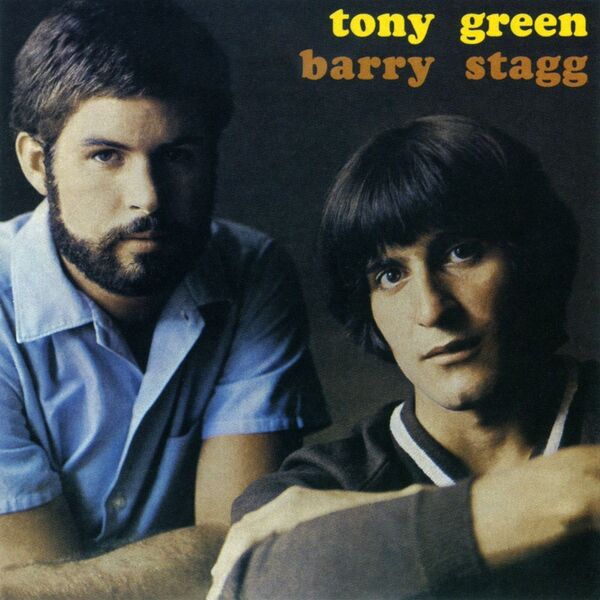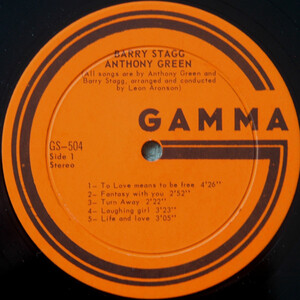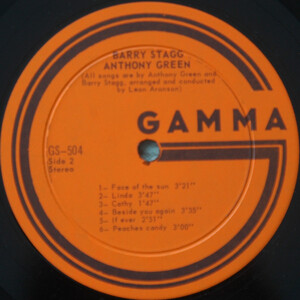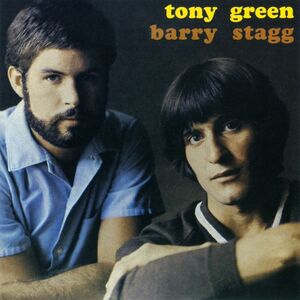Information/Write-up
Anthony Green & Barry Stagg, released on Gamma Records in 1969, marks the official beginning of Barry Stagg’s recording career and his first collaboration with fellow Montreal singer-songwriter Anthony Green. The album arrived during a period when Montreal labels such as Gamma were developing new Canadian talent and when folk and pop duos were gaining momentum across North America. This partnership produced the song that would become Stagg’s early signature: “To Love Means to Be Free,” the opening track on the LP. The single became a major success, reaching No. 2 in Canada, earning Stagg the Canadian Business Music Industry writing award, and establishing the duo on radio stations across the country.
The album presents ten original compositions by Green and Stagg, including “Fantasy With You,” “Turn Away,” “Laughing Girl,” “Life and Love,” “Face of the Sun,” “Linda,” “Cathy,” “Beside You Again,” “If Ever,” and “Peaches Candy.” It has been described as “underrated folk psych with drifty guitar work and dual vocals all over the LP,” with “beautiful melodies and soaring harmonies” noted in “Laughing Girl” and “Life and Love,” and “minor key changes” mentioned on tracks such as “If Ever” and “Peaches Candy.”
Beyond the single’s commercial impact, the LP is significant for containing “Linda,” a song Stagg originally wrote at age eleven, presented here in its first professional recording. The album’s release provided Stagg with the industry foundation that would lead to later contracts with London Records, United Artists, and RCA, as well as a long career spanning pop songwriting, theatre composition, operas, film scores, and later Americana recordings. Although the LP did not become a major commercial hit, it has endured as an important artifact of late-1960s Montreal music and a formative step in Stagg’s development as a songwriter.
Today the album holds a modest collector value but a meaningful historical place in Stagg’s story. It represents the earliest document of his work, the first appearance of “To Love Means to Be Free,” and the starting point of a career that would expand across five decades and multiple disciplines. Within the Canadian discography of the era, Anthony Green & Barry Stagg remains a notable example of the creative energy emerging from Montreal at the end of the 1960s and an essential starting point for understanding Stagg’s long artistic journey.
-Robert Williston




No Comments